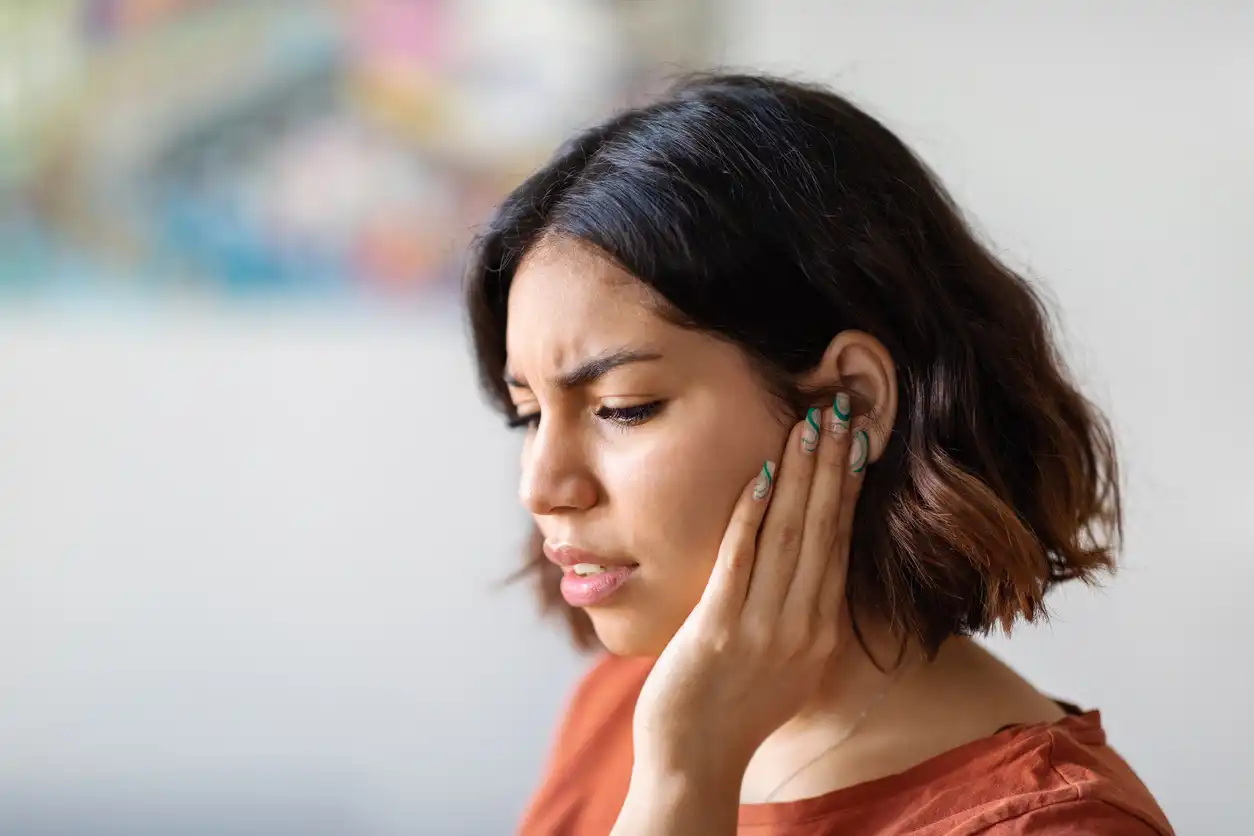Whether it creeps in during allergy season, hits after hours on a plane or comes after a day at the pool, an ear infection can make your day go from good to bad in no time at all. That dull, pulsing ache. The muffled hearing. That something is not quite right inside your head. It is a small place, but when your ear hurts, it feels like it assumes control over the whole universe. The good news? It’s not like you have to just sit there and be in agony. There are actual measures you can take to get relief faster, heal faster and keep future ear infection symptoms from ruining your plans.
What causes an ear infection to develop in the first place?
Ear infections happen as fluid behind the eardrum builds and gets trapped, allowing bacteria or viruses to grow. Most often, they appear after a cold or sinus infection or an otherwise upper respiratory condition. It’s particularly prevalent in kids whose ear canals are shorter and more horizontal, which means fluid is more likely to become trapped.
And it’s not just adults who are getting sick. Swimmers can also develop swimmer’s ear, a type of infection caused by the water that remains in the outer ear canal. Others may experience it in connection with seasonal allergies, rapid changes in pressure — or, particularly in the case of aggressive Q-tip use, physical irritation of the lining of the ear.
How do you tell if it’s really an ear infection?
Sometimes, it’s obvious. You have that deep ache inside your ear, maybe with a fever and a feeling of fullness or pressure that lingers. In kids, symptoms might include pulling at the ear, irritability and even difficulty sleeping. Some infections cause drainage, a clear or yellowish fluid that leaks out when the eardrum bursts. Sounds scary, but your body’s just trying to release some pressure.
If you are experiencing a sensation of muffled hearing or unsteadiness, that may also be related. Your ears serve to help you hear — and not only that, they help you keep standing up. If something’s off inside, you can feel dizzy, out of balance.
Do you need to see a doctor?
If you are experiencing ear pain, it’s always safe to check with the doctor – and especially if the discomfort goes on for more than a day, or if there is any fever, swelling or drainage. Doctors often look with an otoscope and can see right away if the eardrum is inflamed or if there is an infection.
Not all ear infections require antibiotics, particularly if they’re viral. Occasionally your doctor or ent los angeles even will advise waiting two or so days to see if it goes away. This is particularly the case among adults with mild symptoms. But if it’s bacterial or the discomfort is severe, antibiotics for ear infection may be the way to go to head off complications and return to normal more quickly.

What can you do at home if you are feeling sick?
Home care is about comfort and care. – Consider a warm compress on the ear — think a warm, wet washcloth (but not scalding). Taking over-the-counter pain relievers, such as ibuprofen or acetaminophen, can help reduce inflammation and ease the pain.
Ear drops provide relief for many people, but don’t try them if you suspect that you have a ruptured eardrum. If you’re not sure, ask a doctor a doctor always first. Staying hydrated and keeping your head raised can also be of help, particularly if sinus pressure is a contributing factor.
And no, this is not when you dig deep into your ear. Q-tips can push wax farther back and even cause tiny tears that can go on to become infected. Give your ear a chance to heal on its own, without added intervention.
Can ear infections come back?
Unfortunately, yes. Especially in kids. Some children are prone to repeated infections, and that can prompt conversations about ear tubes, a nearly 50-year-old tiny surgical insert that aids drainage and reduces the buildup of fluid. Recurring ear infections are less common in adults but they can still occur, particularly due to underlying problems such as allergies, chronic sinus trouble or frequent exposure to water.
To prevent subsequent infections, keep your allergies under control, treat colds promptly and keep your ears as dry as a bone after bathing or swimming. If you tend to get swimmer’s ear, it can be helpful to use ear plugs or a drying ear drop solution (formulated for ears) after being in the water.
What about the longer-term effects — should you be concerned?
Ear infections typically clear without long-term consequences. But recurrent or untreated infections can result in hearing loss, balance problems or chronic accumulation of fluid behind the eardrum. That’s why it’s crucial not to ignore chronic symptoms, particularly in kids who rely on good hearing for speech and language development.
If you do have difficulty hearing after the pain is gone, or ear infections continue to return, follow up with a specialist. An ENT (ear, nose and throat doctor) will be able to perform additional tests and suggest a treatment to help protect your hearing longer term.
Conclusion
Ear infections can hurt and annoy, but they are also eminently treatable — and in many cases, preventable. From warm compresses to doctor or ent los angeles visits, taking swift action can translate into quicker healing and fewer complications. So if your ear starts speaking to you in aches and pressure, pay attention — and do what it takes to make it feel better again.

